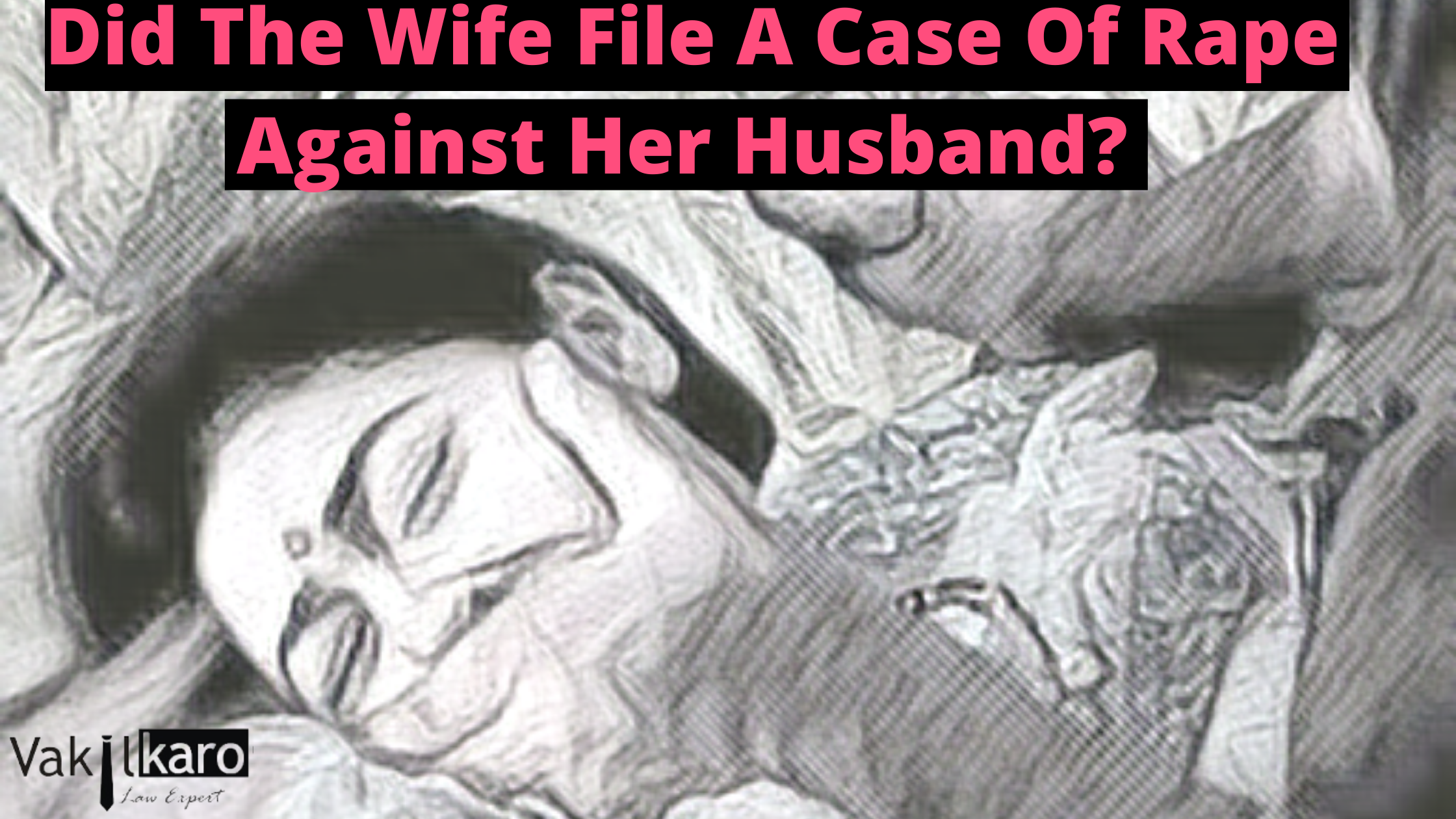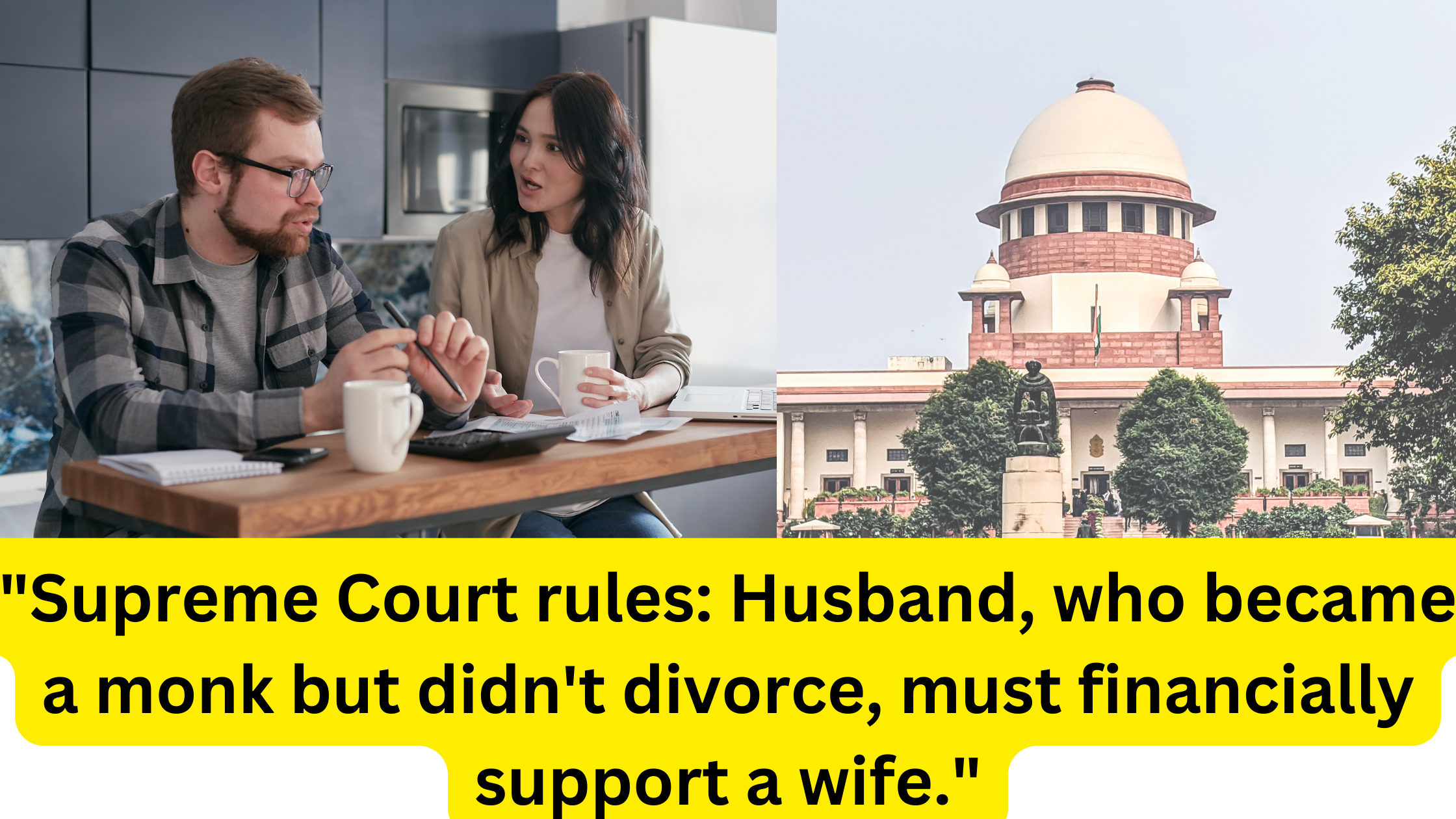What will happen to the case if neither of the parties to the divorce case goes to Court?
According to Hindu customs, it is believed that once a boy and a girl get married, they become partners for the next seven births. But in today's relationships, filing a court case for divorce after the marriage has become common. But when we talk about our culture, it is not considered right to speak openly about divorce. But looking at today's modern era, it can be said that as soon as they get married, the married couple reaches the Court's door for divorce.
All grounds for divorce were given under Section 13 of the Hindu Marriage Act. Both husband and wife have the right they can divorce. If both husband and wife want to take a divorce with mutual consent, they can also take it under this Act. For this, you have to wait for at least one year.
In this blog, you will know that if either of the parties is unhappy with their relationship and they file a divorce case in Court, but the other party does not come during the Court hearing, what will happen to that case?
What is ex-party divorce?
- When a divorce suit is filed in the Court by the husband or wife to seek divorce from his partner, after registering the divorce case, if the other party does not appear, then the plaintiff, i.e., the one who sues in the Court, gives a decree in his favor. The decree won is called an ex-party decree, and the marriage is dissolved. Due to the defendant's negligence, ex-parte action is taken, and the Court grants an ex-parte decree to the plaintiff based on an ex-parte hearing.
- When a divorce case is filed in Court by any of the parties of the married couple, the opposite party often does not appear in Court. Because of this, the court cases go on for a long time in a senseless manner. Due to this, the other party also suffers mental trouble. In such a case, the Court gives an ex-party decree.
- There are two parties in a civil lawsuit, one who sues is called the plaintiff, and the other who defends in that lawsuit is called the defendant. When the plaintiff files his case in Court, the defendant is summoned by the Court so that he can come to the Court and present his case. But if the respondent comes after receiving the summons, a notice is sent to him by registered post. If he still does not arrive, then in some cases, the Court asks the plaintiff to get a gazette in the newspaper against whom he has sued, his name, case number, and why the case has been filed in the paper gazette. Additionally, inform the respondent through the newspaper that he should appear in Court. After this, if the defendant still does not appear in Court, the court orders to proceed ex-parte.
Difference between ex parte proceeding and ex parte decree:
- Ex-parte proceedings and ex-parte decrees are different. When the defendant does not appear despite the plaintiff's efforts, and even after sending the summons, the Court is convinced that the defendant is not coming intentionally. In such a situation, where the rights of the plaintiff are being violated, the Court orders ex-parte proceedings. After that, the Court seeks evidence from the plaintiff, and the plaintiff has to give his evidence and witnesses in the Court. When the Court has this belief, then the Court grants the decree, which is called an ex parte decree.
- There is such a thing as an ex-parte order in civil cases. An ex parte order means an order made by hearing only one of the parties. Such an order can be a decree, or it can also be a decision. Most of the matrimonial matters related to disputes between husband and wife, such as divorce cases, maintenance cases, and issues relating to custody of children, are ex parte by the Court.
- The Court continues to believe that if it has called any person to appear before it and even after such a call, the person concerned does not appear before the Court, then the Court passes the decree after hearing that person ex parte.
When can a second marriage take place after a one-party divorce?
- After getting the ex parte divorce decree, one has to wait at least 90 days to get a second marriage. That is, after 90 days from the day you get the degree of one-sided divorce, you can do second marriage.
Time taken to get an ex parte divorce:
- How long can a one-party divorce take? It is not fixed anywhere. But it is estimated that getting a one-party divorce takes one to one and a half years.
When can a second marriage take place after a one-party divorce?
- After getting the ex parte divorce decree, one has to wait at least 90 days to get married again. That is, after 90 days from the day you get the degree of one-sided divorce, you can do second marriage.
- Sometimes such an ex-parte order made by the Court is in accordance with justice. But sometimes, such an order is unjustified because the party has yet to be allowed to present his case. The essential spirit of the Constitution of India is that both parties should be heard in any case, and no decision should be made against either party without being listened to. But it does not mean that any party does not appear in the Court to harass the Court and adjourn the matter.
- Where the Court finds that the party is trying to avoid the appearance and does not wish to present his case by appearing in the Court, the court ex-parte the party who has committed such fraud.
Reasons for the party being ex-party:
- In a civil suit, a party has several reasons to be ex-parte. The most important of these is that even after the issue of a summons notice by the Court, the parties do not appear in Court. The service of such notice is given importance in such cases. Whenever the Court issues any summons or information, such warrant or warning is issued through registered post.
- Registered post bears the signature of the person receiving the summons, or if that person refuses to accept the position, his entry is marked. If any person refuses to receive the mail sent by the Court, does not reside at the given address, has fled, or is not appearing in the Court even after receiving such post. Then the Court hears the party ex parte in its case.
- In matrimonial lawsuits such as divorce cases, one party seeks divorce by bringing a complaint before the Court. It is the responsibility of the other party to appear in Court and present his case and tell the Court that the grounds on which the complainant is seeking the divorce are false and they do not exist. But in such matrimonial cases, one party brings a complaint, and the other party does not appear before the Court.
- The court issues notice to them many times. Not only this, but after giving a hand to the complainant pasting it at the opposition's house, the complainant does not appear in Court. Court then ex partes such a person from the case. Then only the complainant is heard, and based on that; the Court gives its decision.
How to get such ex-parte order canceled:
- If such ex-parte order is made contrary to law, i.e., without notice or summons, then the law relieves such person.
- Section 28 of the Hindu Marriage Act, 1955, provides for this. This section directs such order to be appealed to the High Court. Under this, the parties can appeal to the concerned High Court against the decision given by the Family Court and can make the ground in such appeal that the order has been shown to them without hearing them. No summons of any kind was issued to him, and even if the summons has been issued, that summons has not been served; that is, he has not received the summons.
- If it is proved in the Court that no effort was made to summon the party by Court, the case was decided without calling. The High Court then sets aside the decision given by the Family Court and orders the hearing of the case to be resumed. Section 5 of the Limitation Act is also mentioned in such cases because Section 5 of this Act provides an exemption for the delay in placing any matter in Court.
- If there has been any reasonable cause for such delay, then making an order from the Court exempts the case. But the reason for the delay must be justified. If it is proved that even after the Court made all efforts to appear before it, the party did not appear, then no relief can be obtained from the High Court.
- Therefore, any notice or summons coming from the Court should not be disregarded, and the parties should be present when the Court orders them to appear before them.
We hope you liked our written blogs. You can also read blogs on other legal topics available on our website. You can view our services by visiting our website. If you want any Civil or Criminal guidance or help of any Lawyer regarding the matter, You may reach us via mail at help@vakilkaro.co.in or call us at +91 9828123489 to resolve any legal problem.
VakilKaro is a Best Legal Services Providers Company, which provides Civil, Criminal & Corporate Laws Services and Registration Services like Private Limited Company Registration, LLP Registration, Nidhi Company Registration, Microfinance Company Registration, Section 8 Company Registration

 +91 9828123489
+91 9828123489 +91 9828123489
+91 9828123489 help@vakilkaro.co.in
help@vakilkaro.co.in.jpg)







.png)







.jpg)
.png)


.png)
.jpg)
 +91 9828123489
+91 9828123489 help@vakilkaro.co.in
help@vakilkaro.co.in